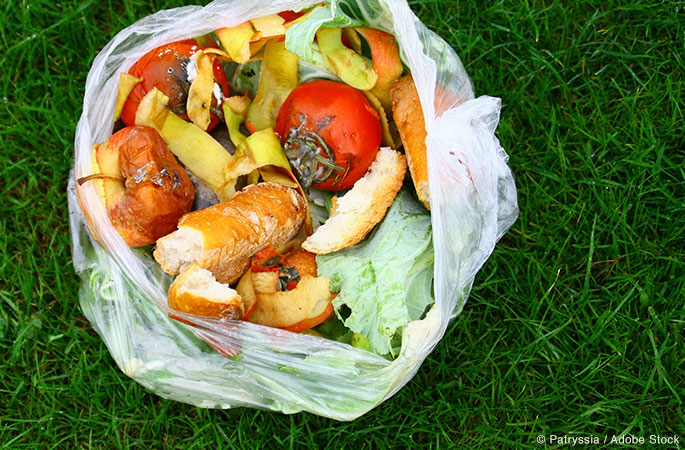
One of the ways some communities are dealing with food waste is to compost it and turn it into fertilizer. The idea has caught on in Europe, according to NPR, and has gone a long way toward solving the problem of food waste. Composting food waste to create fertilizer to grow more food, is becoming more popular in the United States.
However, the program to recycle food waste as a source of fertilizer has run into an unexpected problem. Some of the fertilizer is getting contaminated with plastic.
The problem stems from an understandable reluctance on the part of people to dump raw food waste into a recycle bin. Exposed food, after all, tends to attract vermin, never a healthy or edifying thing to see at a home or business. So, people recycling food waste have developed a tendency to wrap it up in plastic wrap or put it in Zip-Loc bags.
Unfortunately, nothing exists in the recycling process that separates the plastic from the food waste. The process of biodigesting the food into fertilizer also breaks down the plastic into tiny particles which are difficult to detect. So, when the fertilizer is spread onto a field, so are the plastic particles. The plastic is eventually washed away from the field when it rains and gets into freshwater streams and rivers.
The problem of plastic getting into the world’s water supply has become a major environmental headache. The most extreme form of plastic pollution has been the creation of islands of waste plastic the size of small countries floating over the oceans of the world. However, even tiny particles of plastic can prove to be damaging, poisoning fish and even people who ingest it.
Clearly, ways have to be found to better store food waste at the source to keep it away from vermin and to educate people not to throw it away wrapped or store in plastic.




































































































































 Three Ways to Engage Teams and Clients to Maximize Your Recycling Program Engagement
Three Ways to Engage Teams and Clients to Maximize Your Recycling Program Engagement  How to Integrate Accessibility Into Your Sustainability Planning
How to Integrate Accessibility Into Your Sustainability Planning  Why Park Benches Can Promote Workplace Well-Being
Why Park Benches Can Promote Workplace Well-Being 
